
Breeding Older Mares
Are you thinking about breeding an older mare? There are steps—some simple, some cutting-edge—breeders can take to obtain foals from mares with waning fertility.

Are you thinking about breeding an older mare? There are steps—some simple, some cutting-edge—breeders can take to obtain foals from mares with waning fertility.

Steps breeders can take to obtain foals from older mares with waning fertility.

Find out if your mare’s frustrating antics are due to estrus, and learn about ways to keep them in check.
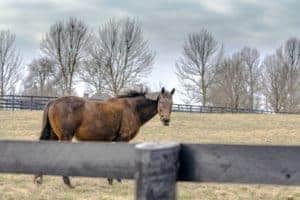
An equine reproduction specialist reviews signs that suggest a mare is in foal and how to find out definitively.

Changing your mare’s estrous cycle patterns can facilitate your breeding and performance plans. Learn about current options for owners who want to control their mares’ heat cycles.

A researcher shares how using recombinant equine gonadotropins can support advanced reproductive technologies in horses.

The transitional period between anestrus and estrus is officially complete once a mare has had her first heat of the year. Getting some mares to this point, however, and deciding when to breed them can be tricky.
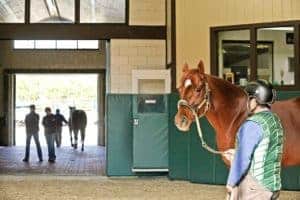
Learn about 14 factors that can affect your stallion’s fertility.

While removing mares’ ovaries can be successful in remedying aggressive behavior, other estrous behaviors can persist even following surgery.
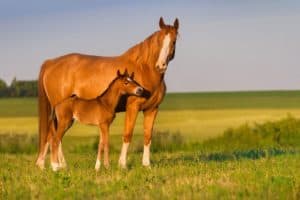
Breeding a mare is exciting and not without challenges. Learn about stallion selection, breeding soundness, and more!

Equine reproduction specialist Dr. Etta Bradecamp overviews obstacles related to breeding performance mares and stallions.
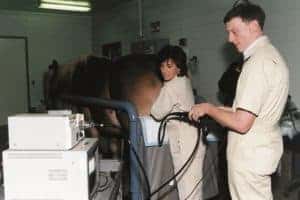
Infertile mare? Deceased stallion? No problem! Equine reproduction is now high-tech enough to overcome these hurdles.

Pregnancy failure in mares is a very real risk; here’s how to prevent or handle it.

Most options can lessen the effects of estrus while still allowing mares a second career as a broodmare.
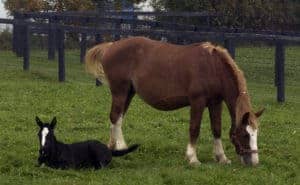
Estrous cycles and certain disease processes can affect mares’ reproductive hormones.
Veterinarians might be able to prevent abortions in some pregnant mares that show premature mammary development, Dietrich H. Volkmann, BVSc, MMedVet (Gyn), Dipl. ACT, told equine veterinarians at the 2010 Western Veterinary Conference, held Feb
Stay on top of the most recent Horse Health news with
© 2022 Copyright Statement dolor sit amet, consetetur sadipscing User Terms, sed diam nonumy eirmod tempor invidunt ut labore et dolore magna aliquyam erat, sed diam voluptua. At vero eos et accusam et justo duo dolores et ea rebum. Stet clita kasd gubergren, no sea takimata sanctus est Lorem ipsum dolor sit amet.
"*" indicates required fields